J’Attendrai (Tornerai)
J’Attendrai (Tornerai)
One of the most wonderful songs is the French song “J’attendrai”. Translated, it means “I Will Wait”. It’s a beautiful song about waiting for a loved one to return. Recorded in 1938 (in French) by an singer called Rina Ketty, it became hugely popular at the time and later came to represent the start of the Second World War. It became a counterpart to Lale Andersen's “Lili Marleen” in Germany and Vera Lynn's “We'll Meet Again in Britain.”
J’Attendrai (Tornerai)
Rina Ketty (1911 - 1996), whose real name was Cesarina Picchetto, was an Italian singer. She went to Paris in the 30s. In 1938 and 1939, she made her breakthrough with songs like “Sombreros et mantilles” and “J'attendrai.” Despite the popularity of these Chansons during World War II, she was not able to stay in the spotlights after 1945. In 1954 she moved to Canada and in 1965 she returned to France but was unable to revive her pre-war success.
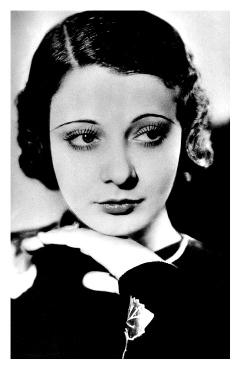
Rina Ketty
Rina Ketty's Italian accent highlighting the French text of the song, worked wonderfully on the radio of those days, but also on various subsequent recorded versions. Her version was followed the same year by one of Belgian chanteuse Anne Clercy, and both Tino Rossi and Jean Sablon recorded it in 1939. When France was occupied in 1940, it quickly became the big war song, with the love song's title being interpreted as meaning waiting for peace and/or liberation.
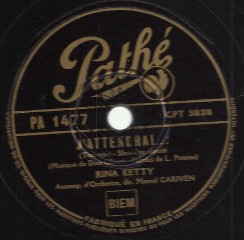
Rina Ketty - J'attendrai, 1938
"J'attendrai" is actually a French version of the Italian song "Tornerai" (Italian for "You Will Return") composed by Dino Olivieri (music) and Nino Rastelli (lyrics). ‘Tornerai’ is the title of a piece of light music written in 1936. Dino Olivieri was born on December 5, 1905 in Senigallia, Marche, Italy. He died on January 24, 1963 in Milan, Lombardy, Italy. Nino Rastelli was born on January 1, 1913, Milano and died on October 4, 1962, Rome. French lyric written by Louis Poterat, was really an adaptation whilst keeping the sentiment of the original lyric.
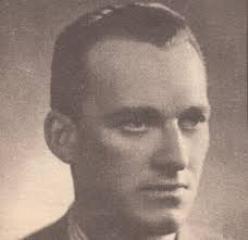
Nino Rastelli
"Tornerai" was first recorded in 1937 by both Carlo Buti and Trio Lescano (accompanied by the Italian jazz quartet Quartetto Jazz Funaro), and become a huge hit in Italy. Carlo Buti (Florence, 1902 - Montelupo Fiorentino, 1963) was an Italian singer known as "the Golden Voice of Italy." He retired in 1956 after having recorded 1574 songs. At the time, he was the most recorded voice in Italian music history. His unique warm and melodic "tenorino" style of high quasi-falsetto phrasing sung in the "mezza voce" made him an international success.
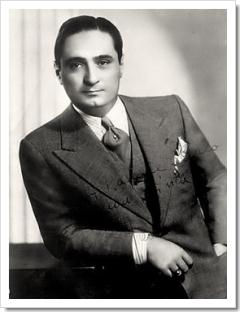
Carlo Buti
Trio Lescano was a vocal trio singing close harmony. The trio became extremely popular in Italy in the 1930s and 1940s. The trio was an Italian version of American groups such as the Boswell Sisters, the Andrews Sisters and was formed by three Dutch sisters whose names were italianized into Alessandra, Giuditta and Caterinetta Lescano. Directed by maestro Carlo Prato and thanks to the radio, they became immediately so famous that even Benito Mussolini, passing by their balcony one day, recognized them and stopped to greet them.
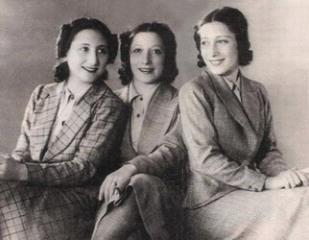
Trio Lescano
Dino Olivieri, composer and conductor, said to be inspired from the ‘Humming Chorus’ of Puccini's Opera "Madame Butterfly". The ‘Coro a bocca chius’ (‘Humming Chorus) has become one of the most famous of opera excerpts. What makes this three-minute chorus so enchanting? There’s its musical beauty, but also its sense of calm, such a contrast to the passion of Cio-Cio-San (Butterfly). This melody, a rare example of an operatic vocalise (wordless song), is doubled by solo viola d’amore – an archaic instrument with a distinct sound, used only this once in the opera.
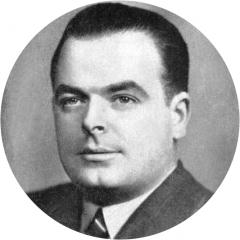
Dino Olivieri
The French version of this Italian song became so well known across Europe that it was often called "J'attendrai" even when recorded instrumentally, such the two versions recorded by Django Reinhardt and Stéphane Grappelli in 1938, or referred to as the original source when sung in other languages. An extremely popular version was recorded by Dalida for her 1975 album J'attendrai.
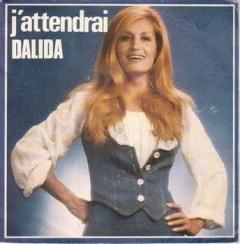
Dalida - J'Attendrai, album
Tornerai lyrics
Tornerai da me, perchè l'unico sogno sei nel mio cuore Tornerai, tu perché senza i tuoi baci languidi, non vivrò Passa il tempo e tu, dove sei, con chi sei, tu non pensi a noi Ma io so che da me, tornerai. Tornerai da me, perchè l'unico sogno sei nel mio cuore Tornerai, tu perché senza i tuoi baci languidi, non vivrò Passa il tempo e tu, dove sei, con chi sei, tu non pensi a noi Ma io so che da me, tornerai La notte e i giorni, tu non ci sei, vicino a me Coi sogni miei, dimmi quand'è che tornerai Tornerai da me, perchè l'unico sogno sei nel mio cuore Tornerai, tu perché senza i tuoi baci languidi, non vivrò Passa il tempo e tu, dove sei, con chi sei, tu non pensi a noi Ma io so che da me, tornerai, ma io so che da me, tornerai. Passa il tempo e tu, dove sei, con chi sei, tu non pensi a noi Ma io so che da me, tornerai.
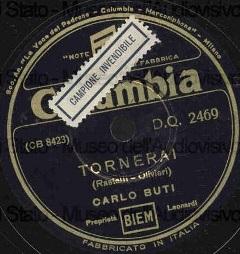
Carlo Buti - Tornerai, 1937
J'attendrai lyrics
J'attendrai Le jour et la nuit, j'attendrai toujours Ton retour J'attendrai Car l'oiseau qui s'enfuit vient chercher l'oubli Dans son nid Le temps passe et court En battant tristement Dans mon cœur si lourd Et pourtant, j'attendrai Ton retour Les fleurs palissent Le feu s'éteint L'ombre se glisse Dans le jardin L'horloge tisse Des sons très las Je crois entendre ton pas Le vent m'apporte Des bruits lointains Guettant ma porte J'écoute en vain Helas, plus rien Plus rien ne vient J'attendrai Le jour et la nuit, j'attendrai toujours Ton retour J'attendrai Car l'oiseau qui s'enfuit vient chercher l'oubli Dans son nid Le temps passe et court En battant tristement Dans mon cœur si lourd Et pourtant, j'attendrai Ton retour Reviens bien vite Les jours sont froids Et sans limite Les nuits sans toi Quand on se quitte On n'oublie tout Mais revenir est si doux Si ma tristesse Peut t'émouvoir Avec tendresse Reviens un soir Et dans tes bras Tout renaîtra Le temps passe et court En battant tristement Dans mon cœur si lourd Et pourtant, j'attendrai Ton retour
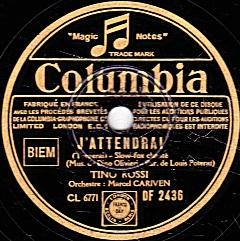
Tino Rossi - J'attendrai, 1939
Giacomo Puccini:
Madama Butterfly - Humming Chorus








